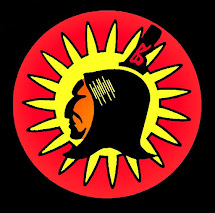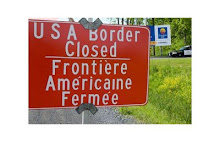
sdesmit@batavianews.com
Thursday, December 17, 2009 10:16 AM EST
TONAWANDA SENECA NATION -- Bloomingdale Road is a wide, two-lane road, paved and well-marked, that runs through the heart of the Tonawanda Nation.
It is not at all representative of life on the reservation.
"When you come down the main road, everything looks nice," Neville Spring said as he drove off Bloomingdale and onto one of the many unmarked side roads that course through the 7,500-acre reservation. "Once you get off, you'll see. This is part of the reservation most people don't see."
Spring owns The Rez, a prosperous smoke shop that has expanded greatly since it first opened and now houses a restaurant, craft shop and gas station.
It is the first business people see when they drive onto the reservation from Route 77. Along the road are well-kept houses, some extravagant and others older and simpler but remodeled, with new cars parked in the driveways.
Most of the reservation's 11 cigarette and gas outlets are located on Bloomingdale so the tens of thousands of people who shop here never see what lies elsewhere.
Abject poverty.
Dilapidated trailers, some hidden by thick groves of trees, dot the landscape. Most don't have skirting and others are propped up by cement blocks.
Portable outhouses sit next to many trailers and orange extension cords run across the snowy yards of some to nearby houses.
"Some of these people have no electric and run cords between houses," Spring said. "They have no running water, no heat."
It has long been this way, Spring said.
That is changing.
Tuesday, crews of laborers were everywhere. Gilbert Ground and Russell Poodry stacked wood in a field near The Rez, adding to what was a row of 100 cords of split hardwood.
In the fire hall, Amie Scrogg and her daughter, Jessica Poodry, painted stain on new doors. A crew of men from the Tuscarora Indian Reservation installed drywall in a remodeled home where Elvira Peters will live.
Contractors used heavy equipment to dig for sewer lines.
Behind a shabby trailer where a family of nine lives is a long shed, in the process of being remodeled into a home.
The efforts are among about 25 projects the Tonawanda Seneca Merchants Association has undertaken since September.
Ten of the 11 merchants joined forces and in January began a mission to set aside money to help those in need on the 600-member reservation.
A single merchant would distribute Seneca-brand cigarettes and for every carton sold, 50 cents would go to the association.
So far about $300,000 has been raised, said Marty Ground, association president and owner of 49 Express.
In July the association decided how to spend the money. Association members would embark on a weatherization program.
Applications were handed out to residents, some who were hesitant to participate, Ground said.
"The elders come first," Ground said. "Some of the houses they live in were built long before me. They have dirt floors and no insulation. We said 'how did they live like this for so many years?'
"The idea is simply, you have haves and have-nots and the have-nots should have something. Some were too proud to come forward. We're a proud people and we're not going to put our hand out. But we know that people are proud, too proud to ask for help. We had to convince some people that they could still be proud and part of being proud is knowing that better conditions do exist."
The association has helped before. About 10 years ago merchants got together for similar projects, including building the fire hall and buying a van for the church.
That association disbanded, in part because donations came from each merchant through an honor system. The new system "has a paper trail and everyone knows exactly how much money is being donated," Spring said.
It's working.
"It has exceed our expectations," Ground said. "A lot of this didn't happen before for a number of different reasons but now, it's evident that we have to do it. It's been a long time coming and it doesn't matter why now. It's being done. That's all that matters."
Residents are thankful.
"We've gotten so many thank-you cards already," Ground said. "Now people know the projects are being done and more people are asking for work to be done, whether it's a furnace or just updating a step."
Stonehorse Gorman is thankful.
Tuesday, Gorman, bundled in a yellow rain slicker and rubber boots, spent Tuesday on his roof, using a long-handled ice scraper to remove old shingles.
Despite a temperature of 23 degrees and a bitter wind whipping across the front of his dilapidated house, Gorman was quite happy to be up there.
"I'm going to have a warm house and running water," Gorman said. "The only people to help were the merchants. Not the Chief's Council but the merchants."
A crew of men worked on all sides of Gorman's house, tearing off the siding and installing new.
Some of the installation was old flour sacks, which lay scattered near a roll-off container.
Gorman has lived here on and off for about 25 years. His nieces used to live with him but he has no running water and little heat and they moved away.
"Now they can move back," he said. "This is my Christmas. I'm finally going to have a warm house."
Spring and Ground know that this is only a beginning. So many houses need work that the task is at first daunting but also full of possibilities.
"It's exciting to see things and make it happen," Spring said. "Our intention was to help the community and we are doing that. We have many future needs. There is no limit but it's exciting and we're proud that in hard times that this is being accomplished."














![-[]-[]-/\-[]-[]-](https://blogger.googleusercontent.com/img/b/R29vZ2xl/AVvXsEjLoXmKO8PJVQ5pZ2q7GX7nFKw8H2tb28dxt-o10FUBNtOGszWhWoLB7tgjtMgtISpuSxNW3fcDxfuSS2DqojsdjNJ1lVggyUS374PnzsDbOhk4ukvtTunFQcyfkckZeBzcLbri4LDYN_E/s214/29-03-A-voice-from-the-Akw-.jpg)




